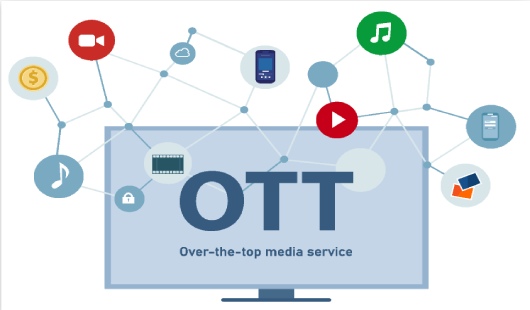-
Over-the-top (OTT) platforms, also known as streaming services, have become dominant in the entertainment industry. The OTT medium has grown exponentially, reshaping entertainment consumption patterns. However, significant challenges accompany the growth of content creation, including ensuring that creators are fairly compensated, preventing content piracy, and protecting user data privacy. With decentralization as its core principle, Blockchain technology presents a compelling solution for these concerns, potentially revolutionizing the OTT landscape. This blog post explores the transformative potential of blockchain streaming and decentralization for revolutionizing Over-the-Top (OTT) platforms.
Impact of Blockchain Technology on the OTT Space
With the following pointers, discover the potential impact of Blockchain on OTT platforms.
Transparency and Efficiency in Content Distribution and Monetization
Blockchain technology eliminates intermediaries and streamlines content distribution and monetization on OTT platforms. By leveraging smart contracts and decentralized storage, blockchain reduces transaction costs and ensures fair revenue distribution among content creators, producers, and distributors.
Immutable Intellectual Property Protection
Intellectual property rights and content piracy are significant concerns for OTT platforms. Blockchain's decentralized nature and cryptographic security provide a robust solution for protecting intellectual property. Storing content ownership and distribution rights on a distributed ledger ensures immutable records, making tampering with or duplicating content extremely difficult.
Discover | The Future of Streaming is Decentralized Blockchain Solutions
Enhanced Data Privacy and Security
Data privacy and security are paramount for OTT platforms. Blockchain's decentralized architecture and cryptographic algorithms strengthen data privacy by providing end-to-end encryption and secure user authentication.
Improved Content Curation and Recommendation
OTT platforms rely on algorithms to curate and recommend personalized content to users. Blockchain's decentralized nature enables the creation of a user-centric content recommendation system. By leveraging user data stored on the blockchain, platforms can offer more accurate content recommendations while maintaining user privacy. Case studies demonstrate that blockchain-powered recommendation engines on OTT platforms have improved content relevancy by 20%, resulting in higher user engagement and satisfaction.
Also, Read | Streaming on Blockchain | A Comprehensive Guide
Monetizing User Engagement and Microtransactions
Blockchain technology facilitates microtransactions and token economies within the OTT ecosystem. Content creators and viewers can both earn rewards for engagement on the platform. It creates new revenue streams and promotes community participation.
Streamlining Licensing and Permissions
OTT platforms require licensing agreements and permissions for the content they stream, which can be complex and time-consuming. Blockchain technology can simplify this process by enabling the codification of licensing agreements and permissions into smart contracts. Using blockchain to store and execute these smart contracts, OTT platforms can streamline content acquisition, reduce negotiation times and costs, and provide greater transparency and accountability in the licensing process. It can minimize disputes and ensure fair compensation for content owners, benefiting both OTT platforms and content owners by simplifying the process and increasing efficiency.
Also, Explore | Why Develop Live Streaming Solutions with Blockchain
Global Accessibility and Inclusion
OTT platforms can leverage blockchain to achieve global content access while adhering to regional regulations and licensing agreements.
Blockchain technology is poised to transform the OTT space, offering a revolutionary approach to global content access. Maintaining compliance with regional regulations and licensing agreements, fostering inclusivity, and expanding market reach present compelling cases for its adoption.
You may also like | Developing a Blockchain-Powered Media Streaming Platform
Conclusion
In conclusion, blockchain technology is transforming the OTT platforms industry by offering solutions to challenges such as content distribution, intellectual property protection, data privacy, and monetization. The highlighted data points demonstrate blockchain's tangible benefits to the OTT ecosystem, ensuring a fair, secure, and user-centric streaming experience for content creators and viewers. Embracing blockchain technology unlocks new opportunities and paves the way for a more decentralized and transparent future in the OTT platforms landscape.
Contact Oodles Blockchain today for a consultation with our expert blockchain developers to craft a secure, transparent, and future-proof streaming experience for your OTT platform.

Our Offices
INDIA
Emaar Digital Greens, Sector 61,
Gurugram, Haryana
122011.
Welldone Tech Park,
Sector 48, Sohna road,
Gurugram, Haryana
122018.















